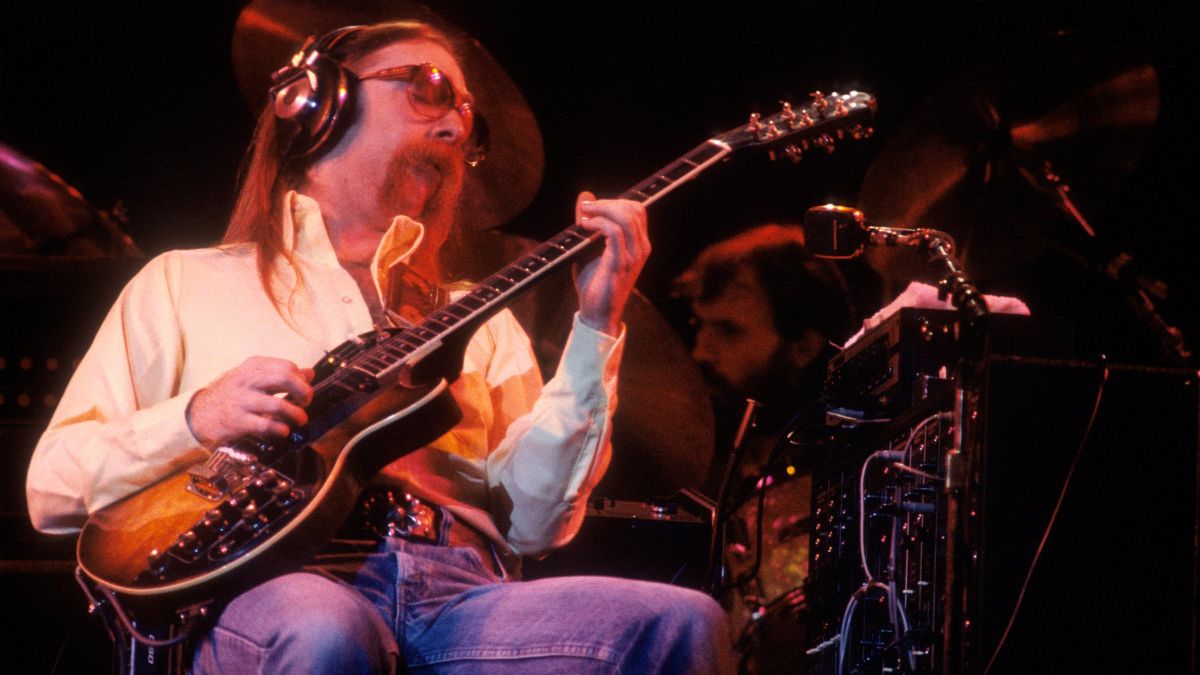“That's my go-to instrument as far as guitars are concerned.” Jeff “Skunk” Baxter on the hidden charms of modern guitars — and how a Squier Tele beat out a bazillion-dollar model from 1958
The Steely Dan, Doobie Brothers, and session legend has had a storied career, and it’s taught him what makes a guitar great

All the latest guitar news, interviews, lessons, reviews, deals and more, direct to your inbox!
You are now subscribed
Your newsletter sign-up was successful
Some of Jeff "Skunk" Baxter's earliest guitar contributions to modern rock can be heard on Steely Dan's first three albums. He followed that gig with a celebrated stint in the Doobie Brothers during the band's most popular years.
But when he received requests to sit in on recording sessions, the guitarist found a calling that was truly satisfying.
“Folks would come in and say they needed somebody to sub for them on sessions,” he explained to Guitar Player earlier this year. “I wanted to be the top gun of studio guitarists,. The better I played, the more it allowed me to help other musicians reach their goals. I loved being part of the whole process.”
Now, with five decades of experience as one of the industry's most beloved session guitarists, Baxter says he's learned a thing or two about what makes for a good electric guitar. He's played a range of them over the years, including a Burns Bison that he bought for “25 bucks and a six-pack of Bud” and put to use on Donna Summer's chart-topping single "Hot Stuff."
These days, Baxter can be seen sporting a familiar staple of the Fender family, namely a Stratocaster. Only it's a G-5 Strat: Beneath its classic tonewoods, the guitar has a very digital heart.
“It’s a Fender Stratocaster that has modeling electronics in it,” Baxter explains. “It's a project we did some years ago at Roland because I got tired of carrying different guitars with me.”
Roland's built-in Composite Object Sound Modeling (COSM) tech was first introduced with the VG-8 multi-effects pedal, and the essence of that has since been integrated directly into Strats. That enables Baxter to dramatically reshape the instrument’s voice to that of a Tele, a Strat, a 12-string or an acoustic. The guitar’s trio of single-coil pickups can imitate the depth and breadth of a humbucker, and it can be switched into a different tuning at the turn of a dial.
All the latest guitar news, interviews, lessons, reviews, deals and more, direct to your inbox!
“That's my go-to instrument as far as guitars are concerned,” he says.
It's not the first nontraditional electric guitar he's used. Back in the late 1970s and early '80s, Baxter was known for using a Roland GR-500 synthesizer guitar, proving he's been a forward thinker for quite some time.

Readers may recoil at the thought of a guitar veteran embracing modern technologies over vintage traditions. But Baxter sees guitars as tools of his trade, and he isn’t one to be seduced into buying something without good reason.
For that matter, he doesn't buy into the idea that vintage is better. For his latest purchase, he looked past a 1958 Tele to chose a decidedly cheaper model.
“I bought a Squier Telecaster that has a Jazzmaster pickup installed for rhythm,” he reveals to Guitarist.
“I played it and really loved it, so I told the guy at Guitar Center, ‘Pull down that '58 Telecaster you have up there,' which cost about a bazillion dollars.
“I spent about an hour setting up the Squier. They had a guitar repair guy there, so I asked if I could use his tools and set up the guitar myself. Very quickly, I compared the two, and the $140 Squier Telecaster, to me, sounded better, so I bought it.”
Another one of his guitar deals saw him trade “a beautiful white Stratocaster” with Jimi Hendrix, which saw him getting an old, beat-up Duo-Sonic in its stead. The guitar had been put through its paces on tour with Little Richard, and Hendrix wanted to get his hands on his first-ever Strat.
Elsewhere, he's discussed how the Ventures revolutionized guitar rock, and has revealed when he'll finally reveal the mysterious origins behind his stage name.
A freelance writer with a penchant for music that gets weird, Phil is a regular contributor to Prog, Guitar World, and Total Guitar magazines and is especially keen on shining a light on unknown artists. Outside of the journalism realm, you can find him writing angular riffs in progressive metal band, Prognosis, in which he slings an 8-string Strandberg Boden Original, churning that low string through a variety of tunings. He's also a published author and is currently penning his debut novel which chucks fantasy, mythology and humanity into a great big melting pot.


